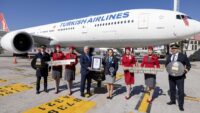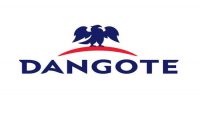One could recount several economic policies of the Federal Government that clearly show that it is no longer comfortable with the over reliance on the downstream sector as key economic indicators are pointers to how the development continues to unsettle both the country’s Gross National Product (GNP) and Gross Domestic Product (GDP).
The inexplicable abandonment of the non-oil sector had surfaced after the discovery of crude oil, thereby, allowing Agriculture and the entire extractive industry to get less attention.
Doubtlessly, Nigeria over the years had enjoyed so much accouterment and respect as one of Africa’s riches nation as a result of huge earnings from the crude oil, but currently faced with the challenge of tweaking the several available economic models to yield results.
We must, however, realise that the era of “oil boom’’ has long gone, leaving the country with no option than to espouse economic policies that could speak to the narrative of “a country beyond oil’’.
We can only view with nostalgia, the Kano Groundnuts Pyramid; the huge reservoir of oil palm and Palm plantations in the Eastern part of the country; the Cocoa of the West; textile industry and car manufacturing plants in both Lagos and Kaduna, as well as active mining across the country.
These aforementioned economic prospects if maintained should have today formed major constituents of free trade zones for the country economic growth.
What then is Free Trade Zone? Free Trade Zone (FTZs) also called Export Processing Zones (EPZs) are specific areas which have a different set of rules than the rest of the country in order to attract Foreign Direct Investment (FDI) and to also enhance local production for foreign exchange earnings.
An entrepreneur has the latitude to choose the free trade zones in Nigeria in which he or she wishes to incorporate business venture according to the services provided in the trade zone.
Some of the free trade zones are more suitable to a particular kind of industry whereas others are more general.
Border Free Trade; Calabar Free Trade Zone; Centenary Economic City Abuja; Onne Oil and Gas Free Trade Zone; Kano Free Trade Zone; Lekki Free Trade Zone; Ogun-Guangdong Free Trade Zone; Ladol Free Trade Zone, Snake Island Free Trade Zone; Tinapa Resort & Leisure Free Trade Zone as well as Dangote Free Trade Zone, Lagos are some of the active free trade zones in the country.
President Muhammadu Buhari has been consistently faithful with such economic policies that could leapfrog the country’s economy to a monolithic state as the government continually leverages on the pathways created by the Nigeria Export Processing Zones Authority (NEPZA).
The current administration’s believe in the potentials of the free zone scheme to turnaround the economic for the better is perhaps responsible for the appointment of Prof. Adesoji Adesugba as substantive Managing Director of NEPZA.
The Minister of Industry, Trade and Investment, Mr Niyi Adebayo during Adesugba’s induction on July 1 expressed confidence in his capacity to deliver on the job, as according to him, NEPZA requires close supervision of a technocrat and quality of the new managing director to drive the country’s economy.
“I once again congratulate the new NEPZA MD on his appointment and we hope that you would not disappoint the ministry.
“Remember that NEPZA is a parastatal under the ministry, and therefore, must carry out aspirations of the ministry that would help in growing our economy.
“NEPZA’s successes or failures would always naturally rob-off on the ministry, so the ministry will not be quiet when things are going wrong,’’ the minister said.
Meanwhile, Adesugba did not mince words when he charged the Management Staff of the Authority to galvanise the work force to improve on their work ethics with a view to optimizing the contribution of the Authority to the country’s Gross National Product (GNP).
Adesugba, also remarked that NEPZA provided the country with sufficient escape route for economic recovery Post Covid-19, adding the only team work was required to achieve the Authority’s set goals.
The NEPZA boss further explained that the Authority’s success or failure would be measured by its actions or inactions during this crisis period of economic downturn caused by the prevailing covid-19 pandemic.
He appealed to the management staff to see his appointment as a blessing to the sector, adding that the work force must work as a team and one family to achieve any meaningful results.
“I have years of experience working with government establishments. My exposure particularly to agencies like Customs, Nigeria Export Promotion Council, NEPC, Nigeria Investment Promotion Commission, NIPC, the National Association of Commerce, Industry, Mines and Agriculture, NACCIMA, and as a Legal Practitioner has indeed made me an industry player.
“I shall be bringing my experience to bear so that we can support the government to improve on its revenue derive, especially in the non-oil sector.
“I am prepared to run an open process where the contribution of all shall be measured, tested and applied for the overall good of the Authority,’’ Adesugba said.
Furtherance to this, the MD thanked the out gone Acting Managing Director, Mr Bitrus Dawuk for not deviating from the Authority’s mandate, adding that his predecessor was had been impeccable with the manner he handled the agency from December 2019 to July 1, 2020.
One may be compelled to continually salute Dawuk’s leadership style of inclusiveness and his genuine disposition toward using NEPZA to diversify the country economy.
Recall, Dawuk had recently expressed satisfaction on President Buhari’s special commitments toward ensuring effective and efficient management of the country’s Free Trade Zones Scheme for speedy national economic growth post covid-19.
Dawuk said this in his presentation titled “Seeking New Frontiers for Repositioning NEPZA for Maximum Investor Attraction and Retention in the Post Covid-19 Era viaa webinar organised by Dubai-based Free Zone training and management consulting company, CTP International FZLLE for selected industry experts across the world on Thursday, May 19, 2020.
The Ag MD, NEPZA said the Authority was enthused by the president’s special interest to ensure the scheme surmounted all prevailing challenges so as to leverage on the opportunities provided by the country’s free trade zones to accelerate Foreign Direct Investment (FDI) into the country.
Dawuk explained that he was not surprised by Buhari’s support for NEPZA and the entire operation of trade zones, adding that the Federal Government’s former subtle perception of the scheme changed when president made a state visit to China to have an on the spot assessment of how Chinese Free Trade Zones and Special Economic Zones were being managed.
He explained further that the Authority had enjoyed some considerable increase of budgetary allocation since the president discovered the need to support the sector to perform optimally, adding that Buhari’s exposure to the Chinese free zone scheme had robbed off positively on NEPZA and the Nigeria free zone scheme respectively.
Dawuk remarked that the change had become more inevitable with the current Covid-19, a disease pandemic ravaging human lives and economic activities, adding that president Buhari had been divinely mandated to leverage on the free trade zone scheme to fine-tune the country’s economic trajectory.
Pursuant to the vibrant transformative economic programmes of the federal government, the activities of the agency have been strengthened which has led to the establishment of 37 Free Zones spread across the country.
A zone can be operated by the public or private sector or a combination of both. Some of the zones cater for a specific area of economic enterprise while others are more general in nature.
There are currently 400 licenced Free Zones Enterprises operating in the various zones across the country.
The overall objective for the adoption of free zones in the country is to create an enabling environment aimed at enhancing economic growth and development of export oriented manufacturing in the non-oil sector of the economy.
This structure is also aimed at the propagation of the Nigerian content policy in the oil and gas sector in order to diversify the country’s economic base, attract Foreign Direct Investment (FDI), generate employment, increase foreign exchange earnings, enhance technological transfer, skill acquisition/upgrading as we as create backward linkages.
“Since the inception of the scheme, Nigeria’s economy has witnessed tremendous patronage and steady growth through FDI inflow and revitalization of local industries.
“Presently, NEPZA is being repositioned to take up the role of an Industrial Development Agency that will be responsible for the rapid industrialization of the Nigerian economy by facilitating the development, promotion, operation, regulation and marketing of industrial clusters, industrial cities, industrial parks and free zones across the country,’’ Dawuk reiterated.
In addition, NEPZA is currently prepared for the task of conceptualizing and executing transformational industrial zones and centers for the benefit of the country as well as applying incentives to industrial areas as needed.
Overall, NEPZA cardinal objective is to ensure that its clients’ operational and strategic objectives are realized through responsive, cost effective and efficient services and instant pragmatic solution to their needs.
These strategic locations of the free zones regulated and managed by NEPZA provide the required head-start to a resilient economic growth for the president Buhari-led administration going forward.
For the benefit of hinsight, Mr Chris Ndibe in his book titled: “The Danger of Neglecting Free Trade Zones in Nigeria’’ draws attention to the enormous gains accruable to the country from this organized trading structure when the major encumbrances are eliminated.
Ndibe, the Executive Secretary of African Free Zones Area (AFZA) believed Nigeria could become the next “miracle of Shenzhen’’, a fishing village transformed into a cosmopolitan city of 14 million, with per capital gross domestic product (GDP) growing 100-fold, in the 30 years since it was designed as Special Economic Zone (SEZ) .
In conclusion, as many countries affected by the covid-19 pandemic look for quick fixes for their economies, the Nigerian government may not have to look far as NEPZA free zone scheme with Adesugba leading the team, remains the panacea for the country’s post covid-19 economic revival. END
Martins Odeh
Head, Corporate Communications, NEPZA




